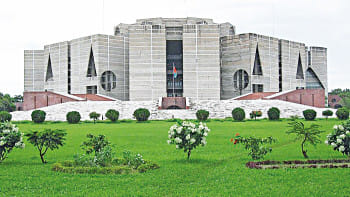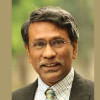Who is eligible to be a Supreme Court judge?

There is a misperception, although not common and not quite voiced, that there is no law for the appointment of judges in the Supreme Court of Bangladesh. Those who think so may wonder how, then, the judges are appointed in the highest court established by the Constitution of the People's Republic of Bangladesh, and how they take the oath to protect and preserve the constitution and the law of the land without fear, favour, or hatred.
We have only one way to find the answer to this question: looking into the constitution.
Article 95 of our constitution lays down the provisions for the appointment of judges in the Supreme Court. It occurs in Chapter One under Part VI, The Judiciary. Article 95 reads:
(1) The Chief Justice shall be appointed by the President, and the other Judges shall be appointed by the President after consultation with the Chief Justice;
(2) A person shall not be qualified for appointment as a Judge unless he is a citizen of Bangladesh, and –
(a) has, for not less than ten years, been an advocate of the Supreme Court; or
(b) has, for not less than ten years, held judicial office in the territory of Bangladesh; or
(c) has such qualifications as may be prescribed by law for appointment as a Judge of the Supreme Court.
(Sub-Article 3 is not relevant.)

In order to appoint any citizen only from the third category, a piece of law prescribing their qualification has to be made (which may be as an "act" of parliament or an "ordinance" promulgated by the president, subject to the conditions laid down in Article 93 of the constitution).
For the other two categories, the law has been laid down in Clauses (a) and (b) of Article 95 (2). Here, it is the constitutional law, as opposed to the statutory law, that will apply. No further law by way of an act or an ordinance is required for these two categories.
To make this picture clearer, we may read Article 118 (1) alongside Article 95 (2) and then compare the provisions of these two articles.
According to Article 118 (1) says, "There shall be an Election Commission for Bangladesh consisting of the Chief Election Commissioner and not more than four Election Commissioners, and the appointment of the Chief Election Commissioner and other Election Commissioners (if any) shall, subject to the provision of any law made in that behalf, be made by the President."
Thus, an act of parliament is required to be made for the appointment of judges only as per Clause (c) of Article 95 (2), as it is required to be made for appointment of the election commissioners, as per Article 118 (1). Accordingly, the Chief Election Commissioner (CEC) and Other Election Commissioners' Appointment Act, 2022 was made by the parliament on January 29, 2022, for the appointment of election commissioners, as required by Article 118 (1) of the constitution. But no such law has yet been made as required by Clause (c) of Article 95 (2).
However, for the appointment of any judge in the Supreme Court, other than the chief justice of Bangladesh, consultation with the chief justice is mandatory even if a citizen is otherwise found to be qualified under Article 95 (2).
It may also be mentioned that, as per Article 95 (1), the chief justice shall be appointed by the president. Then again, Article 48 (3) stipulates, "In exercise of all his functions, save only that of appointing the Prime Minister pursuant to clause (3) of article 56 and the Chief Justice pursuant to clause (1) of article 95, the President shall act in accordance with the advice of the Prime Minister."
It may not be out of place to mention here that the Supreme Court is the ultimate authority to interpret the constitution and the law of the country.
Therefore, to ensure proper and uniform understanding, constitutional issues should be raised before and be decided by the Supreme Court, which is the proper forum to address and decide such issues anyway.
Justice Md Rezaul Hasan is a sitting judge at the High Court Division of the Supreme Court of Bangladesh.

 For all latest news, follow The Daily Star's Google News channel.
For all latest news, follow The Daily Star's Google News channel. 










Comments